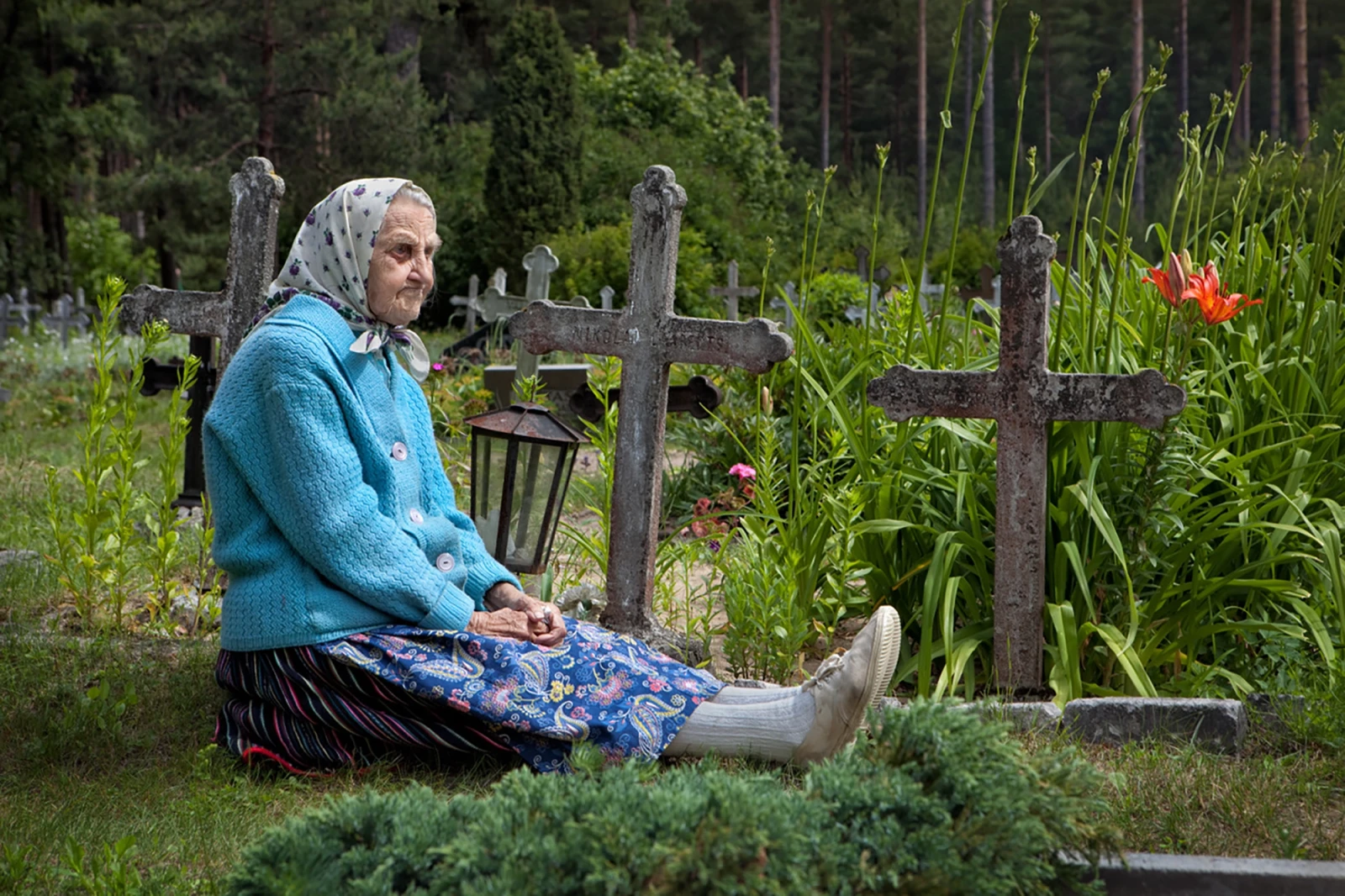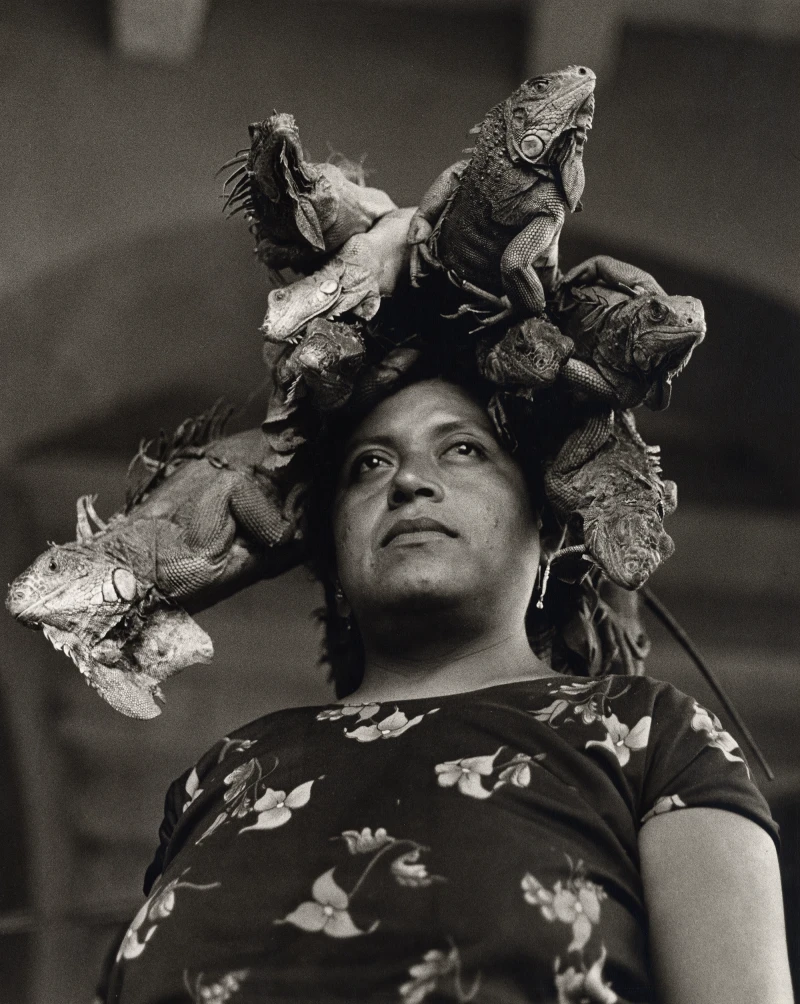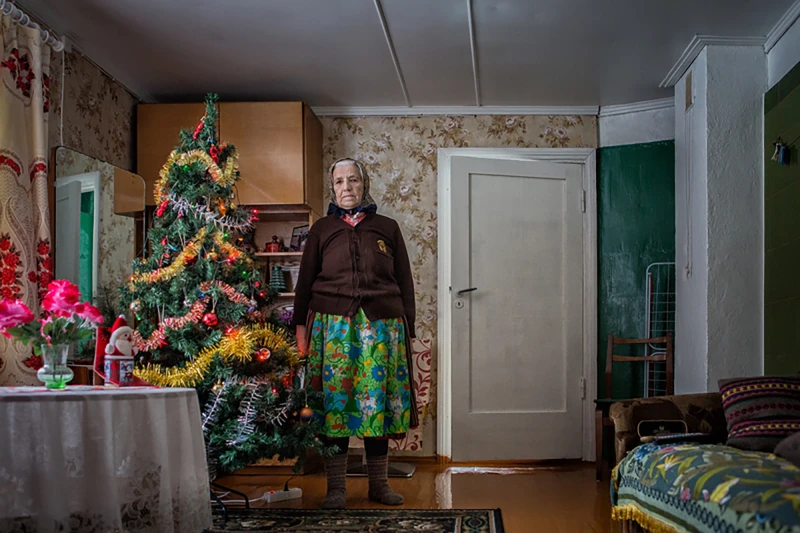Matriarchy
Graciela Iturbide | Anne Helene Gjelstad

Matriarchy
Graciela Iturbide | Anne Helene Gjelstad
Exhibitions
Side Gallery
Side is proud to announce the project Matriarchy - An exhibition season in celebration of women-led communities.

"Juchitán" by Graciela Iturbide
Graciela Iturbide’s internationally renowned historical work focuses on the indigenous Zapotec people in the town of Juchitán, in southeastern Mexico, where women dominate all aspects of social life, from the economy to religious rituals. In this matriarchal society, diverse gender identities and sexualities are accepted and encouraged.
Graciela Iturbide was born in 1942 in Mexico City. In 1969 she enrolled at the age of 27 at the film school Centro de Estudios Cinematográficos at the Universidad Nacional Autónama de México to become a film director. However she was soon drawn to the art of still photography as practiced by the Mexican modernist master Manuel Alvarez Bravo who was teaching at the University. From 1970-71 she worked as Bravo’s assistant accompanying him on his various photographic journeys throughout Mexico.
In the early half of the 1970s, Iturbide traveled widely across Latin America in particular to Cuba and several trips to Panama.
In 1978 Iturbide was commissioned by the Ethnographic Archive of the National Indigenous Institute of Mexico to photograph Mexico’s indigenous population. Iturbide decided to document and record the way of life of the Seri Indians, a group of fisherman living a nomadic lifestyle in the Sonora desert in the north west of Mexico, along the border with Arizona, US.
In 1979 she was invited by the artist Francisco Toledo to photograph the Juchitán people who form part of the Zapotec culture native to Oaxaca in southern Mexico. Iturbide’s series that started in 1979 and runs through to 1988 resulted in the publication of her book Juchitán de las Mujeres in 1989.
Between 1980 and 2000, Iturbide was variously invited to work in Cuba, East Germany, India, Madagascar, Hungary, Paris and the US, producing a number of important bodies of work.
She has enjoyed solo exhibitions at the Centre Pompidou (1982), San Francisco Museum of Modern Art (1990), Philadelphia Museum of Art (1997), Paul Getty Museum (2007), MAPFRE Foudation, Madrid (2009), Photography Museum Winterthur (2009), and Barbican Art Gallery (2012), between others. Iturbide is the recipient of the W. Eugene Smith Memorial Foundation Award, 1987; the Grand Prize Mois de la Photo, Paris, 1988; a Guggenheim Fellowship
for the project ‘Fiesta y Muerte’, 1988; the Hugo Erfurth Award, Leverkusen, Germany, 1989; the International Grand Prize, Hokkaido, Japan, 1990; the Rencontres Internationales de la Photographie Award, Arles, 1991; the Hasselblad Award, 2008; the National Prize of Sciences and Arts in Mexico City in 2008; an Honorary Degree in photography from the Columbia College Chicago in 2008; and an Honorary Doctorate of Arts from the San Francisco Art Institute in 2009.
She continues to live and work in Mexico City.
For more information on Graciela Iturbide visit: gracielaiturbide.org

"Big Heart, Strong Hands" by Anne Helene Gjelstad
Anne Helene Gjelstad’s contemporary photo essay Big Heart, Strong Hands, highlights the women’s lives on the small Estonian Islands of Kihnu & Manija, often referred to as the last matriarchal society in Europe. Here the women take care of almost everything on land as their husbands travel the seas for work. Geographically isolated, a strong sense of community spirit and a steadfast attachment to their ancestor’s customs has developed over centuries.
Anne Helene Gjelstad is a Norwegian photographer specialising in Fine Art portraits and Wall Art for private and public spaces. Trained as a photographer, she has worked across various genres, with a strong focus on artistic expression. She no longer undertakes traditional portrait assignments, dedicating her practice to creating carefully composed and meaningful images.
Her studio is based at Gjettum Gård above Sandvika, where she utilises hand-painted backdrops for distinctive studio portraits. She also works outdoors, incorporating the natural surroundings into her compositions. In addition to her artistic work, she has taught photography and image editing and has completed commercial assignments for publishers, magazines, and businesses.
Gjelstad has received numerous international awards, including honours in the Norwegian Photographers' Association’s national competitions and the World Photographic Cup. In 2024, her documentary work earned multiple awards in the 1839 Awards and Refocus Awards. She has also received official recognition from the Estonian Ministry of Foreign Affairs for her contributions to documenting Estonia’s cultural heritage.
Her ongoing projects include Big Heart, Strong Hands, a long-term study of the older women on the Estonian islands of Kihnu and Manija.
For more information on Anne Helene Gjelstad visit: annehelenegjelstad.com
